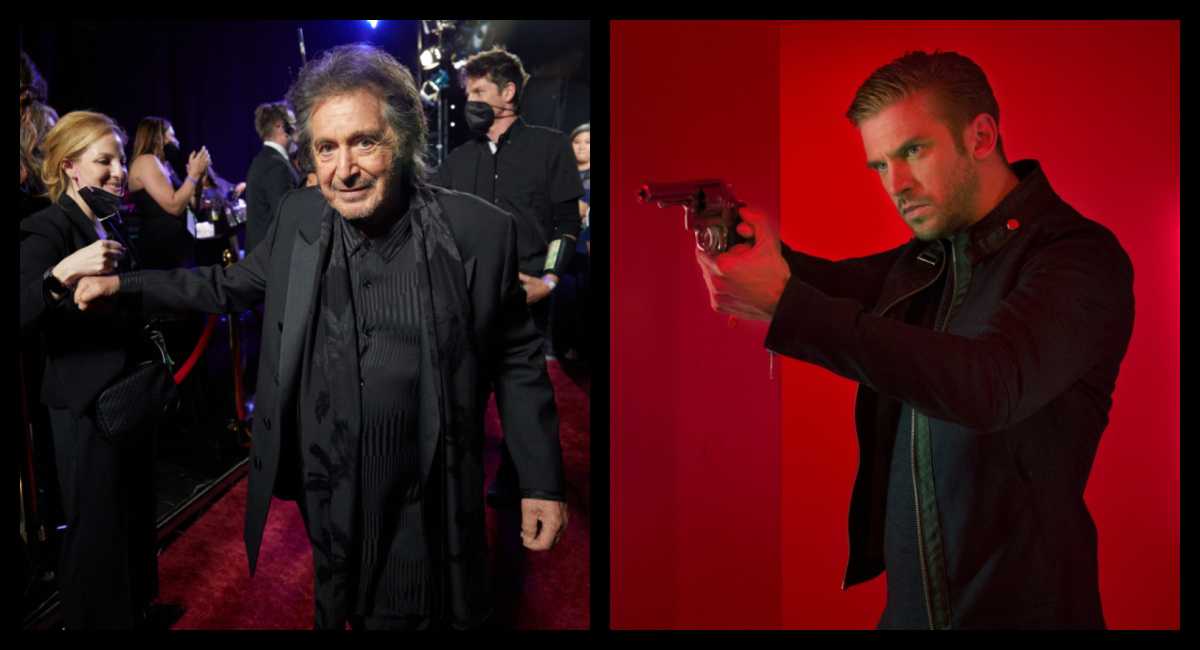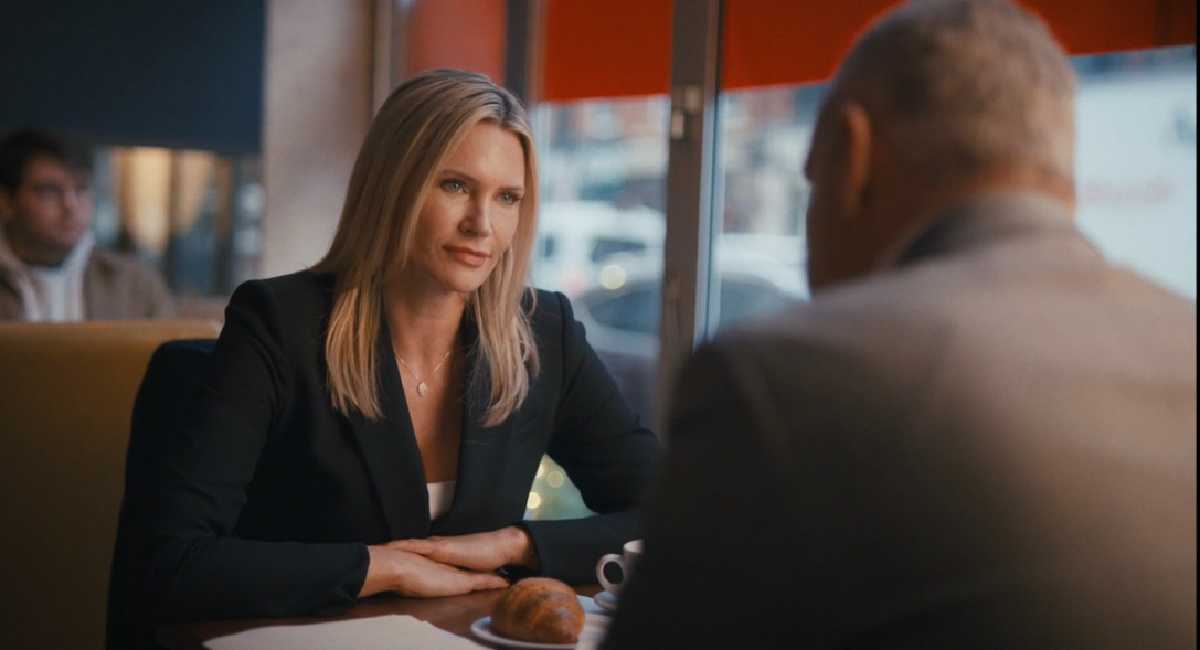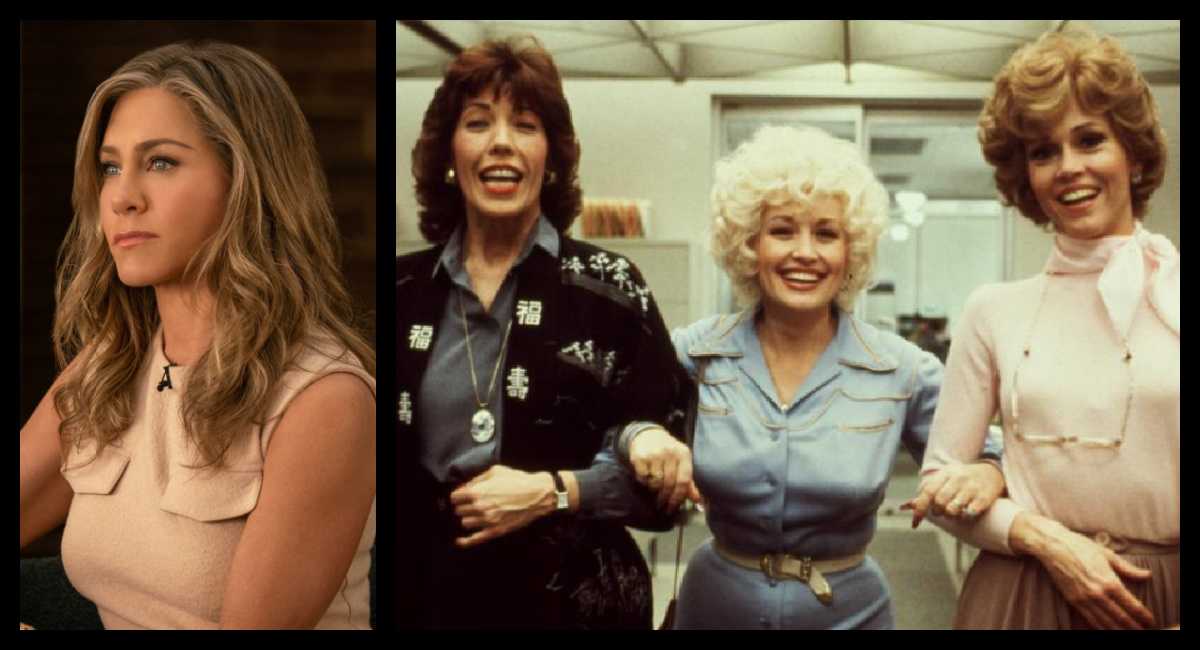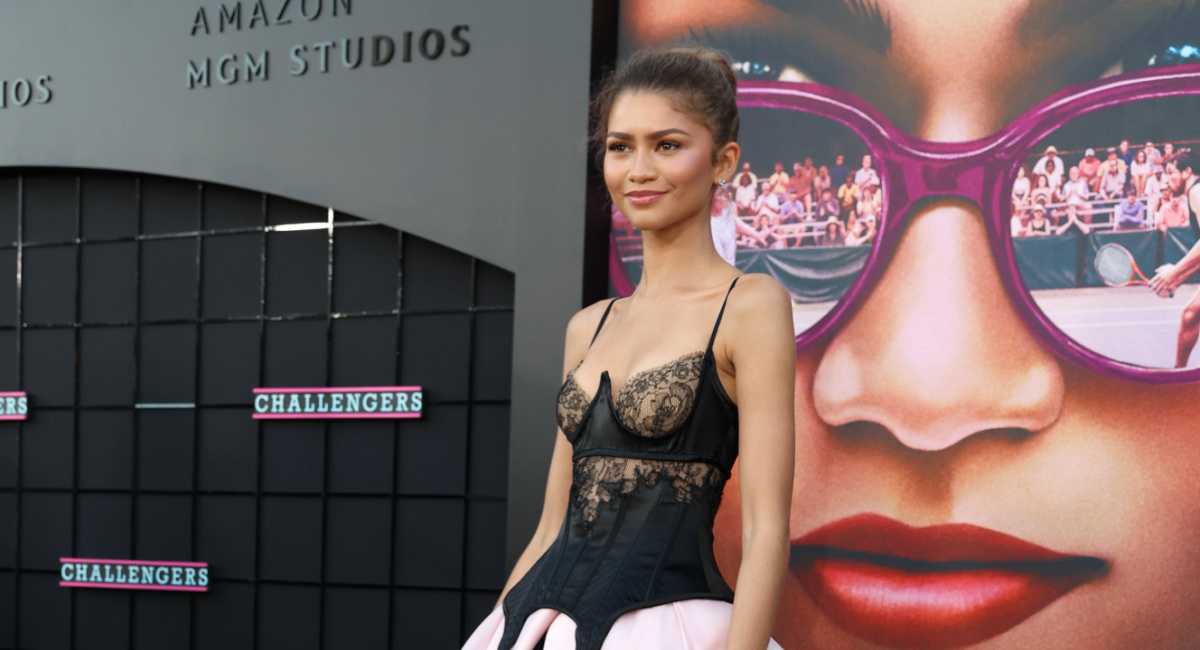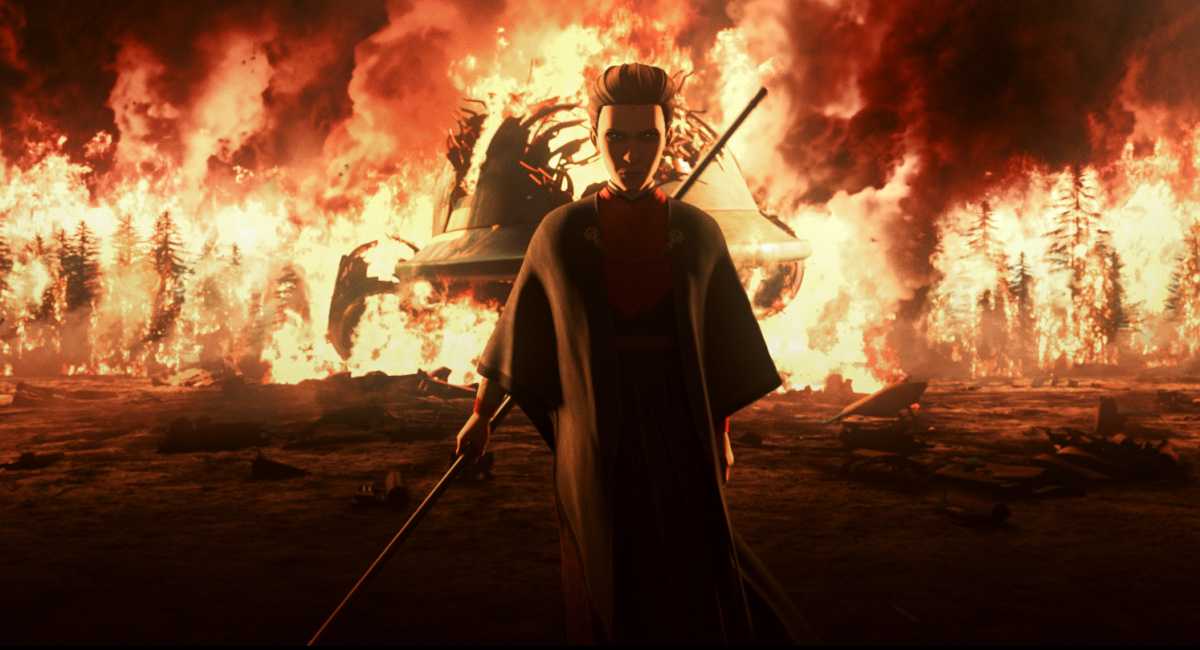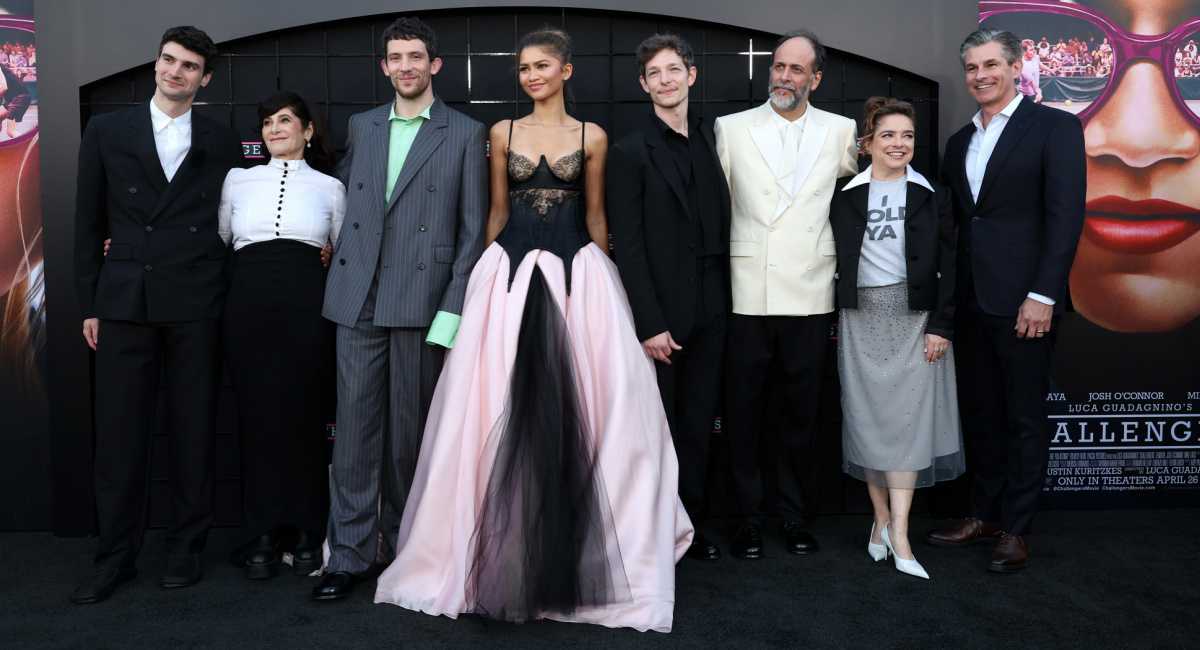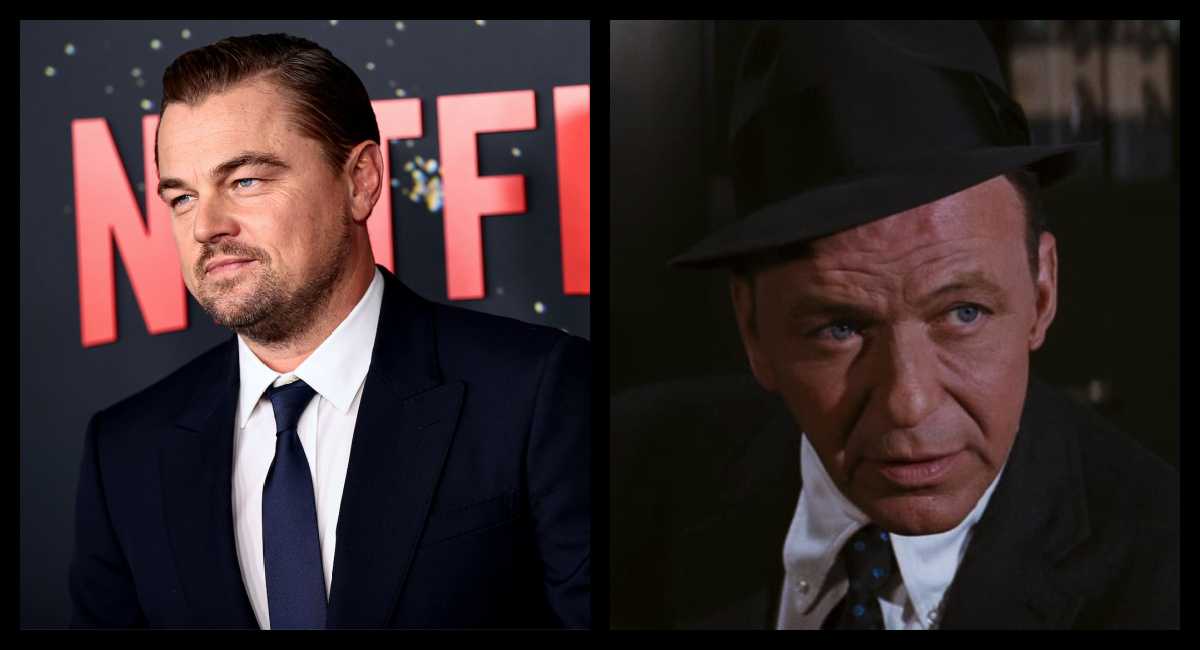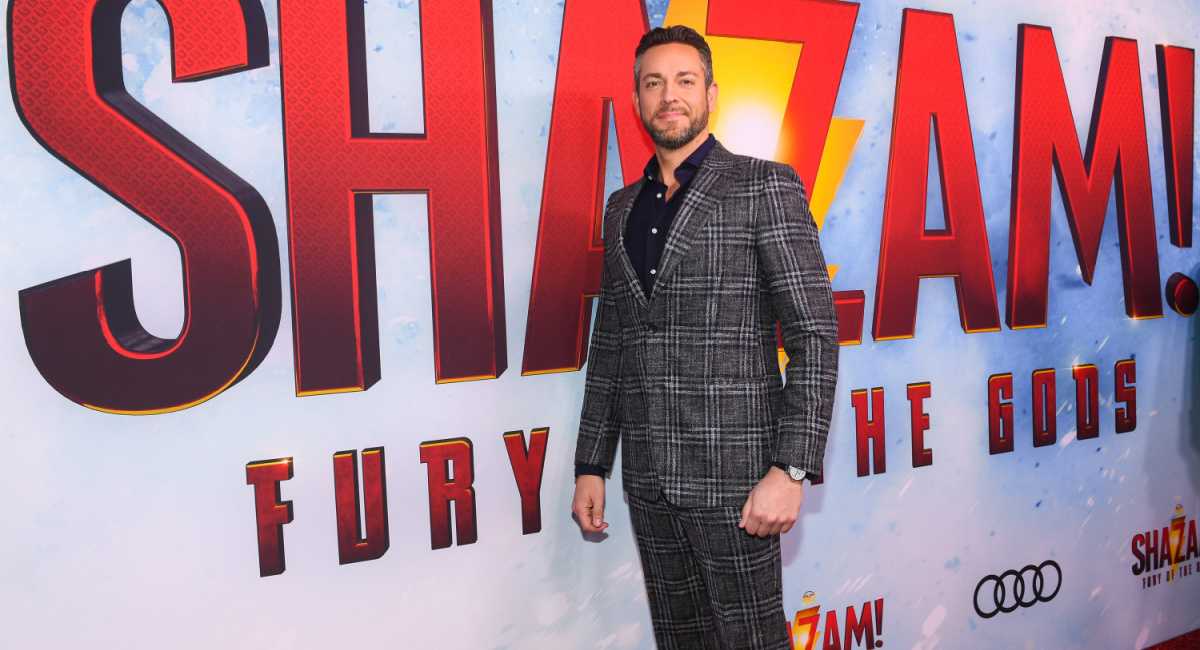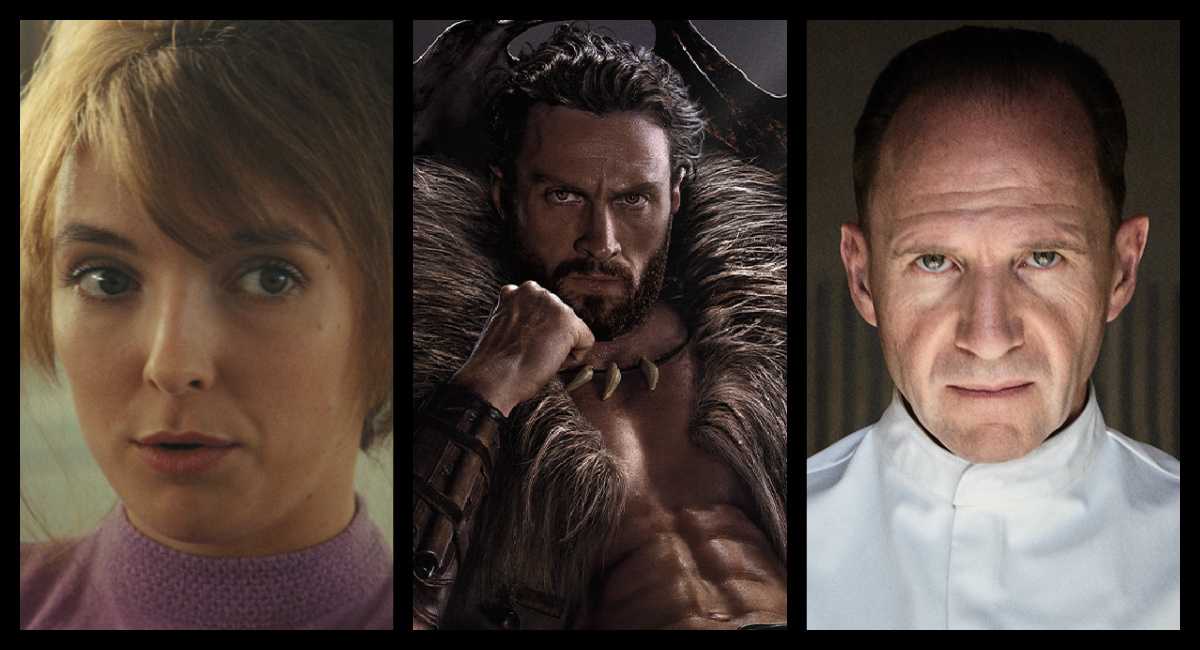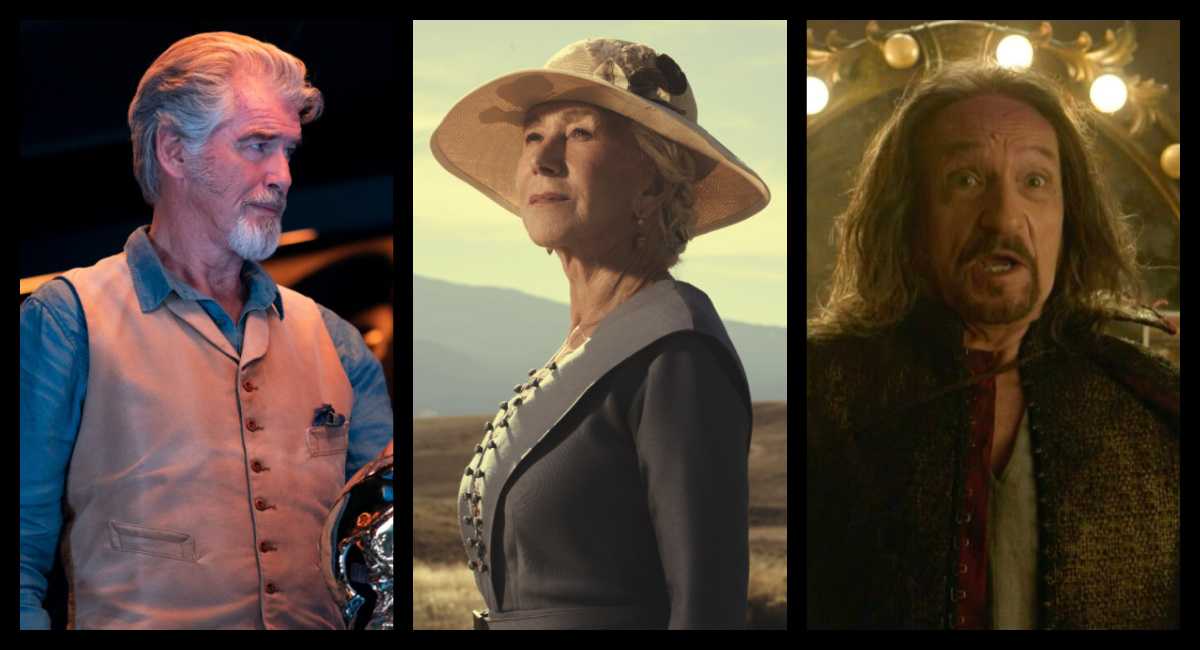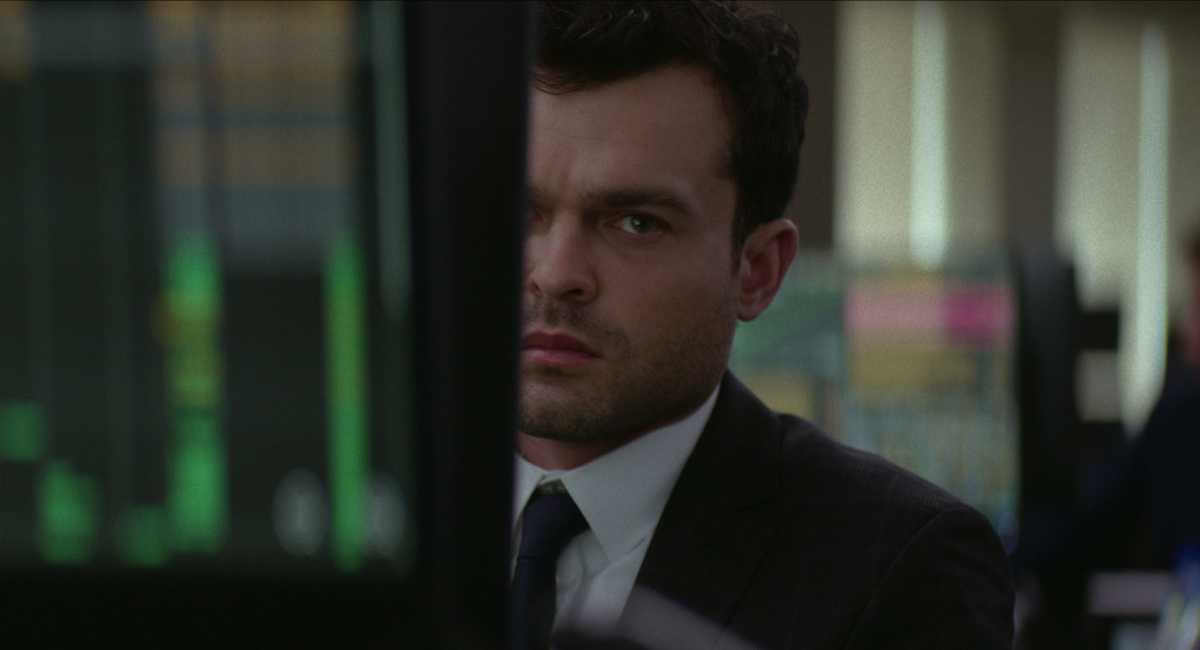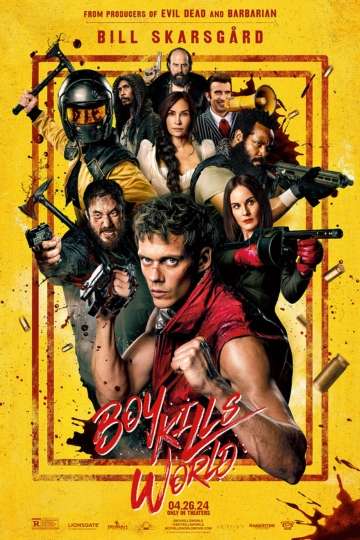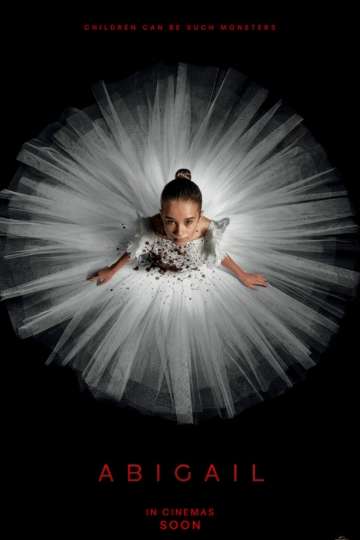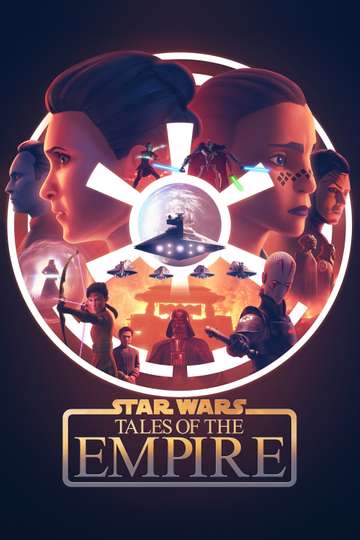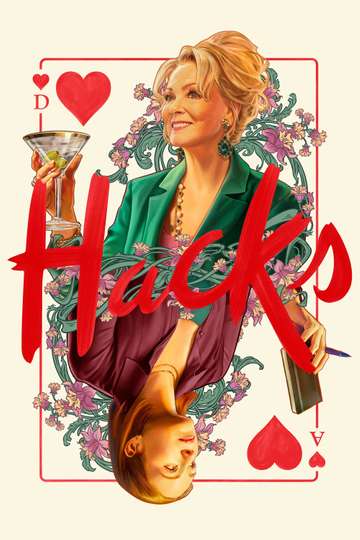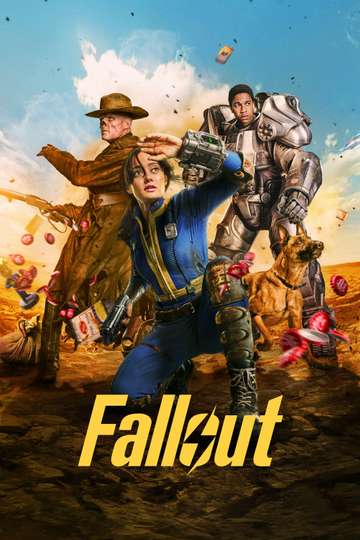Jurnee Smollett-Bell & Aldis Hodge Are Learning as Much From 'Underground' as You Are
"Underground's" Roselee and Noah represent the human heart beating at the center of the series' historic tale, and no one knows it better than Jurnee Smollett-Bell and Aldis Hodge.
After a long stretch in between a season finale that left viewers desperately concerned about whether the couple's love would survive the not-always clandestine battle for freedom from slavery that left them separated, and the season premiere which finally answered some of the burning questions about their current fates: Noah's managed to dodge a death sentence, while Rosalee's joined the company of the eventually-renowned Harriet Tubman, the leading historical figure in the saga of the Underground Railroad.
And as Smollett-Bell and Hodge revealed to Moviefone, they're not just reveling in the opportunity to tell a revealing, important story from the past that remains sorely and vitally relevant to modern times, their educating themselves along the way.
Moviefone: After such an amazing first season, what got you excited about coming back for more, once you knew where they were going to start moving the story?
Aldis Hodge: For me, it was just the effect that we were able to achieve with the first season was unreal for us. We didn't really expect it. So being able to come back and see where they were going to take the story, because they write in such an interesting way. It's such an unpredictable way.
As an actor, it's kind of like just candy, man. You can look forward to good stories, and then we have the introduction of so many new characters, that it'll be interesting to see how that plays out. So along with shooting it, we're kind of fans of the process as well.
But I'm excited for the fans. What we experienced last year, it was really kind of surreal, and we didn't know how people were going to grasp on to it, but they've really attached themselves to it. I'm more excited about replicating that and giving them that experience, that rollercoaster ride all over again.
Jurnee Smollett-Bell: For me, it was the idea of when [showrunners] Misha [Green] and Joe [Pokaski] told us this season, the theme is citizen versus soldier. Who decides to become who? The idea of Noah and Rosalee -- we've lost everyone. We've even lost each other by the end of Season 1. So what do you do?
For me, I have my freedom, but at the cost of what? Who did I have to sacrifice to get here? And I realized that freedom ain't so free, and there's no way to live in peace and happiness knowing everyone I love is in bondage, between Noah, my mother, and my brother.
So the idea of meeting up with Harriet Tubman -- that's where we meet Rosalee in the beginning of Season 2: she has been on the road with Harriet for the past few months learning how to transfer cargo. What station is where, who to contact, what's the language, the lingo to use. And my ultimate mission is to go and run 600 miles to get my family back, but I want to take a detour first and get Noah, break him out of jail, and Harriet doesn't agree with that plan.
Bringing in those historical figures, how did that change things up for the storyline? Did you feel that it impacted to have those big, significant presences there?
Hodge: I feel like it added to what we already started building in the first season, because even though we're not playing historical figures that people know are real people, but they were built up from real people, and we're working from real foundation.
So to bring in Harriet to the fold, that had to happen because she's the patriarch of what it is we're doing. For the audience, it adds a sense of appreciation, a sense of understanding, and also insight into what that world may have been like.
Smollett-Bell: It's such a happy coincidence, everything that's happening right now. Especially with Harriet Tubman being put on the 20-dollar bill. That was all a coincidence. She was always written in into the end of Season 1, and that going into Season 2, we would explore the Harriet/Rosalee relationship. And when that happened, it was just like, "OK, thank you God."
It's true. You just feel like there's just good energy towards everything, and you just feel like, you know what, the world needs to see her story, finally, and need to see this superwoman that she was. It's all by coincidence, though. I think also, bringing these historical figures in, it just raises the stakes, and makes it just a little more truthful.
Speaking of coincidence, maybe more serendipity, you guys could not have known, when you started on this journey, how important this show would be for the times that people are watching it in.
Smollett-Bell: Yeah. Unfortunately, yeah.
Hodge: Yeah.
So, tell me what it means to you now to keep telling this story at a time when for many people hope is taking a hit, in a sense.
Smollett-Bell: It's true. Hope is taking a hit, justice is taking a hit, Lady Liberty. I think more so than ever, we need art to lead the way, and we need art to inspire people to rise up, and to not let our country go backwards, because we see what it looks like when we make it what it used to be again.
We couldn't have planned that, but I think there's something that happens when art tries to dive into this other world of truth. When you really try to just tell the truth, it resonates, regardless of time period, regardless of nation that you're in. The struggle for justice is long. It's a battle we will consistently fight.
Hodge: Let's be honest, this is not taught in schools. If it is taught, it becomes a choice. African American studies in college -- you have to choose it, whereas a lot of people probably won't. A lot of people will get their understanding of culture and history from, speaking to Jurnee's point, art, what we do, what we put on TV.
So we, as artists, have a responsibility to be, I would say, we deviate from the truth in storytelling to a degree, but we have a responsibility to be honest to the nature of the foundation of that truth. So in a time like this, I feel like we are fortunate enough to be in a position where our job, and our art, and our creativity is a part of the positive contribution to what we're looking forward to going into.
Somebody's going to look at us and say, "I choose to go against that." This is literally a mirror image of, speaking again to Jurnee's point, we get a chance to be a part of positive cultural change that will happen, because people will get to a point where they realize we need to do something about it. It will happen, and if we can stand on the right side of that change right now, we couldn't ask for anything better.
You've already, from Season 1, gotten some big returns on social media. You are directly connected to your audience, in a way. Tell me about the responses and what they've meant to you as you've seen viewers reach out to you to say, "Oh my gosh, this touched me in this way...," or "I didn't know this. I should have known this."
Hodge: It means a lot. It means a whole lot. We were concerned with whether or not people would get us, and whether they would receive us, but the fact that they've received us, they take ownership of us, and they carry that to their daily lives.
You have people tracking back their ancestry just because of watching our show. You have people who are incorporating the ideas of our show into their curriculum at schools, different things like this. You can sit back as an artist and truly understand the effect of what your work can do. Speaking back again to the responsibility that we have. I feel like whatever you do leaves a blueprint, and you hope that that blueprint is a positive one and effective.
When people come up and tell us how involved they are, or how passionate they are, that they learned something new that they never knew this time frame was like this, it shows that it's not just art for art's sake, we're actually creating something that's educating people and influencing our community. Which, at the end of the day, is the bigger goal of what we do and why we do it.
Tell me about the historical lessons for you guys -- because you're not just actors, you're learning history on the job -- and what have been some of the takeaways that you didn't see coming when you signed on.
Smollett-Bell: To know how much it's challenged me in every aspect of my life, mind, body, spirit -- physically, to just do an ounce of the physicality that our ancestors actually did in real life humbles me. There were real men and women who ran 600, 800, 1,000, 1,500 miles. Can you imagine what that's like? Most of us, it's hard to run one mile, let alone 600 miles.
So working in the conditions, it really humbles me, but inspires me to understand the depth of our strength. We are mighty people. We are a mighty nation, and this nation was built on the backs of mighty people, and that same spirit is inside all of us, and I think we take it for granted. We hold our history, and we hold our ancestors up on this pedestal as if they're untouchable, and as if what they did, and what they achieved, and the path that they've pushed this nation in is in the past.
In reality, that's what we come from, and that is what we therefore are capable of bringing this nation to as well. So for me, it's just been so inspiring, because some of these stories you read, it's like, there is no way. She ran with a newborn strapped on her back? She ran through the swamps, and the alligators, and the snakes. She ran barefoot? What?
Then the ingenuity of this complex network, which really we dive into more in Season 2 than we did in Season 1, just how complex it was to transfer cargo, the underground tunnels, the fake names, maybe working in the day time at a hospital because you're trying to save up money so that you can afford to transfer cargo. This whole network really is explored more in Season 2.
They were brilliant. We always say, "They didn't have a cell phone, or a map to put in GPS to find their way, but they used their God-given instincts."
Jurnee, now that you're a new parent and you're part of this narrative, what does that mean to you? You keep pushing these stories forward that sometimes America wants to brush over or forget.
Smollett-Bell: I know, I know. I want my son to know his story. I want him to know where we were as a nation, where we are as a nation, how far we have come, and how far we have to go. And it is so frustrating to me that children don't learn this in the middle school, high school history textbooks. It's like a blurb, and normally they sum it up to the legendary Harriet Tubman. They really don't dive deeper into how we as a nation became this side of our nation.
Fortunately, I had a mom who would throw me Harriet Tubman's biography when I was eight years old, and having watch it in the "Malcolm X" film, and wanted me to know my Jewish heritage, as well as my African American heritage. But, unfortunately, a lot of kids don't know the story. That's why we feel so fortunate to be a part of bringing this story to life. Not just talking about the occupational slavery, we're talking about the revolutionaries. Those who did fight-back.
Hodge: The thing we do well with the show is bring it to a terms of commonality. In school, your curriculum says African American studies. There's history, then there's African American history. Not realizing that African American history is American history.
Smollett-Bell: And it's not just limited to February.
Hodge: Yeah, exactly. So the actual separation of it in terms of curriculum has become the reaffirmation of segregation. When you look at these stories, and you look at these people, and you start realizing these human beings who lived here, and that really deserved their space, they fought for their space, they fought for the ideals that we live by today.
You're saying, wait a minute, "This really is American history." So it doesn't leave anybody out. It's an open door for everybody to come in, and learn, and watch, and enjoy what we're doing, because we're celebrating the idea of what it truly means to be an American.



